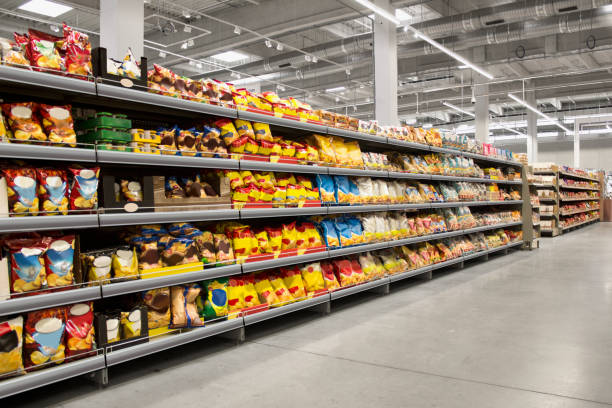The Hidden Problems in Supermarket Bread

Craving fresh, wholesome bread without the hassle of a supermarket trip? Butter & Crust's delivery service brings artisanal bread and pastries straight to your door, perfect for those lazy weekend mornings.
But if you're curious about what lurks behind those seemingly innocent supermarket loaves, read on to discover the hidden problems of mass-produced bread.
The Preservative Predicament
Supermarket bread often contains a cocktail of preservatives to extend shelf life and maintain texture. While these additives are deemed safe by regulatory bodies, some consumers are increasingly concerned about their potential long-term effects.
Common Preservatives in Supermarket Bread
- Calcium propionate (E282): This mould inhibitor has been linked to behavioural changes in some studies, though more research is needed.
- Potassium sorbate (E202): While generally considered safe, some individuals may experience allergic reactions.
- Sodium benzoate (E211): This preservative has been associated with increased hyperactivity in some children when combined with artificial colours.
- Sorbic acid (E200): Generally recognised as safe, but may cause irritation in sensitive individuals.
Potential Health Concerns
While these preservatives are approved for use, some researchers and health advocates argue that their cumulative effect and long-term consumption may pose risks:- Gut health: Some preservatives may alter gut microbiome balance, potentially affecting digestive health and overall wellbeing.
- Allergic reactions: Certain individuals may experience allergic responses to specific preservatives, ranging from mild to severe.
- Behavioural impacts: Some studies suggest a possible link between certain preservatives and behavioural changes, particularly in children.
It's important to note that while these concerns exist, the scientific consensus maintains that approved preservatives are safe when consumed in normal amounts. However, for those who prefer to err on the side of caution, opting for freshly baked bread with minimal additives may be a prudent choice.
The Waste Woe
Beyond the ingredient list, supermarket bread contributes significantly to the UK's food waste problem. The British Retail Consortium reports that supermarkets and their suppliers wasted 240,000 tonnes of food in 2021-22.
While this figure encompasses all food waste, bread is a major contributor due to its short shelf life and overproduction.
Read our previous article on the UK's bread waste issue here.
The Scale of Bread Waste
- Approximately 24 million slices of bread are thrown away daily in the UK.
- This equates to about 900,000 tonnes of bread waste annually.
- Bread accounts for roughly 10% of all food waste from UK households.
Environmental Impact
The environmental cost of this waste is staggering:- Resource depletion: Wasted bread represents squandered water, energy, and land use in its production.
- Greenhouse gas emissions: When bread ends up in landfills, it produces methane, a potent greenhouse gas.
- Economic loss: The financial cost of bread waste in the UK is estimated at £770 million per year.
The Artisanal Alternative
In light of these concerns, many consumers are turning to artisanal and locally produced bread as a healthier and more sustainable alternative. Here's why:- Fewer additives: Artisanal bakers often use traditional methods that don't require artificial preservatives.
- Freshness: Local bakeries typically produce bread daily, reducing the need for extended shelf life.
- Reduced waste: Smaller-scale production allows for better matching of supply and demand, minimising overproduction.
- Community support: Choosing local bakeries supports the local economy and reduces transportation-related emissions.
- Improved taste and texture: Many consumers report preferring the flavour and texture of artisanal bread.
Making Informed Choices
While supermarket bread offers convenience and affordability, it's essential to be aware of its hidden costs – both to our health and the environment. Here are some tips for making informed bread choices:- Read labels: Look for breads with shorter ingredient lists and fewer additives.
- Choose fresh: Opt for freshly baked bread when possible, either from local bakeries or in-store bakeries.
- Plan ahead: Reduce waste by buying only what you need and freezing excess for later use.
- Explore alternatives: Consider bread delivery services like Butter & Crust for fresh, artisanal options without the supermarket trip.
By being mindful of our bread choices, we can contribute to better personal health and a more sustainable food system. Whether you're popping to the local bakery or having fresh loaves delivered to your door, choosing artisanal bread is a small change that can make a big difference.
Remember, every slice counts – both for your wellbeing and the planet's health. So next time you're craving a sandwich or toast, why not skip the supermarket aisle and savour the simple goodness of freshly baked, additive-free bread?








